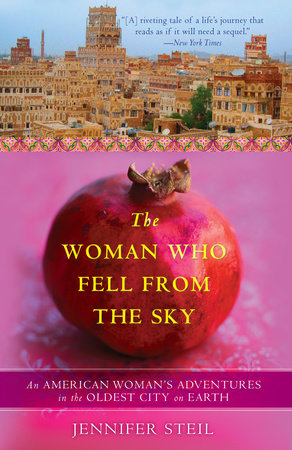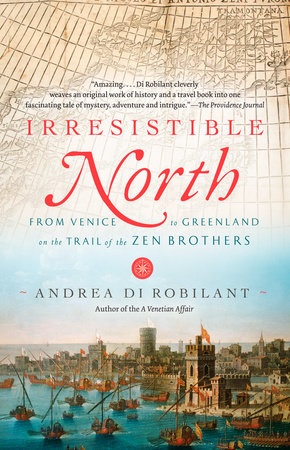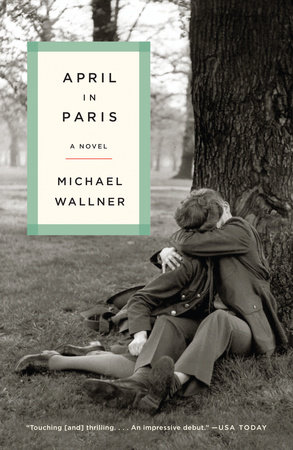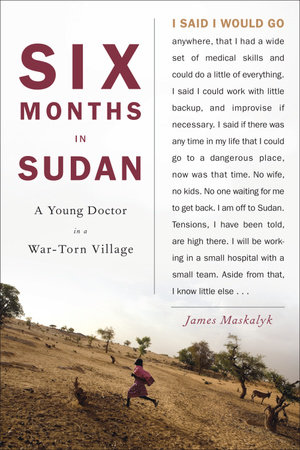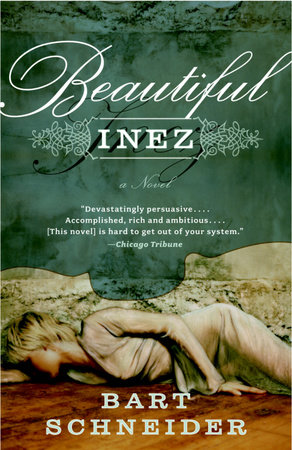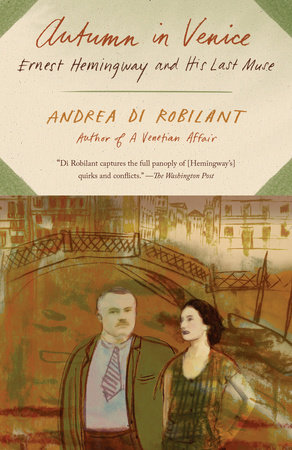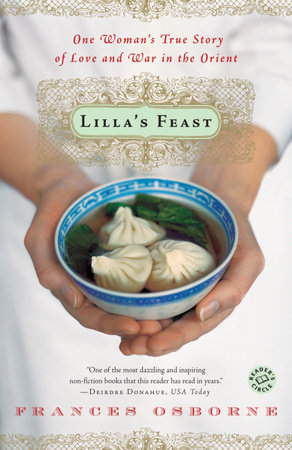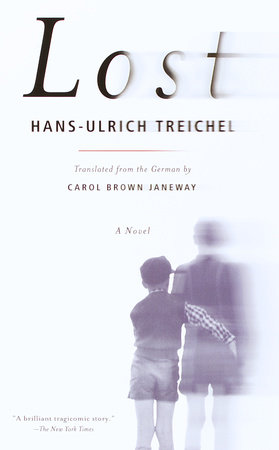An Interview with Jennifer Steil
Broadway Books 1: How does writing a memoir compare to writing news stories?
Writing a memoir is in many ways much easier than writing news stories. News stories require such intensive reporting and running around, and then must be written on very tight deadlines. I had a year to write this book, and nearly another year to edit it, which felt very leisurely to me! Of course the book required research as well, but much of it was based on the daily journals I kept during my first year in Yemen.
Writing a memoir is also a much lonelier business than writing news stories. When I am working as a reporter, I am constantly talking with people, either interview subjects or colleagues. Writing a book required long solitary hours in my office, and I found myself longing for someone to talk to at the water cooler!
Of course, there are also huge differences in structure. I found myself struggling with the structure of the book, whereas I can fairly easily structure news stories. I figured out the structure the book as I went along – with lots of help from my editors!
There are also some commonalities between book writing and news writing. Both memoirs and journalism require scrupulous reporting of facts. I always try to be as honest and fair as possible. A memoir, however, includes plenty of my own opinions and feelings, which news writing excludes.
BB2: At one point, you were surprised to find yourself sounding patriotic as you explained American constitutional rights to Farouq. How did being an expatriate affect your sense of what it means to be an American?
I feel that living abroad has deepened my affection for America, while also making me more critical of certain aspects of American culture. When I left the US, I was furious at our government and the country in general. A dedicated Democrat, I was bitter about the last two elections and outraged by pretty much everything George W. Bush ever did. I was embarrassed to be American and pessimistic about the future of the country.
Living in Yemen did not improve my view of the Bush administration, but it did make me grateful for the many privileges of life in the US. All the things I took for granted—drinkable tap water, free speech, freedom to dress however I wanted, a variety of healthy food available everywhere, dental care, good hospitals, decent education, diversity—became more precious to me. I felt proud that I came from a country where I could rant about whatever I wanted without fear of the government tossing me into jail.
I used to complain about sexism in America, which does still exist. But it is nothing compared to what women are subjected to in Yemen – and in so many other places. I feel so lucky that by the sheer accident of my birth I grew up in a country where I have had the freedom to go to school, be critical of religion, make friends with men and women, and choose a career for myself. I appreciate the fact that in the US I feel that I am seen as a person with an intellect and rights, rather than as property.
That said, one thing I liked about leaving America was shedding so many THINGS. I gave away or threw out most of my possessions (aside from books and notebooks, which I stored in my parents’ barn) and it was really freeing to realize that I could easily live for a year with just two suitcases worth of clothes and other things. So much about life in the US seems excessive from here. I mean, do we really need 97 flavors of chewing gum and 53 flavors of iced tea? I would go to stores and just get overwhelmed by the choices.
I have become more critical of the frivolity of American life. It’s hard to get worked up about my own small problems when Yemenis are worried about the most basic things: access to water, access to schools, starvation, sickness, and war.
3. Despite the hardships, you truly fell in love with Yemen. What was the turning point?
There were many little turning points – meeting and having tea with my neighbors in Old Sana’a, finally finding time to eat lunch outside of the office (it made such a difference to get away for an hour!), figuring out how to do all of my shopping and errands in Arabic, and taking time to get out of Sana’a and explore more of this gorgeous country. I am glad I came here alone, because I got such a huge sense of accomplishment from finding my own way and becoming self-sufficient in this strange land.
Perhaps my biggest turning point came as a result of getting the newspaper on a regular schedule. Once I had achieved this Herculean feat, I was finally able to spend more time with my reporters individually. I could give them the training and attention they needed. I could also spend some time with them outside of the office. This made my job suddenly much more enjoyable. I loved spending time with my staff. They are the reason I came to Yemen, and the absolute best part of my first year here was watching their progress and forming relationships with them.
Once we were on a regular schedule, I also had more time to explore Yemen and meet people outside of work.
4. How do you hope the book will affect readers? What stereotypes would you like to overturn?
So many westerners I meet in the US and England have not even heard of Yemen. If they have, they only know it as a hotbed of terrorism, which is how it’s generally described in the news. News coverage of Yemen is extremely skewed—western papers rarely write about the country unless embassies are being attacked or tourists are getting blown up.
What you hardly ever read about is the amazing hospitality and generosity of the Yemeni people. The overwhelming majority of people I have met in Yemen have been kind, open-hearted, and curious about westerners. Yemenis will invite you home to lunch five minutes after meeting you. And if you go once, they will invite you back for lunch every week. This kind of immediate and sincere hospitality is not often found in the west.
I hope my book helps eliminate the stereotype that all Yemenis are crazed terrorists. I want people to come away with the understanding that Yemen has a diverse population, and the majority are peaceful people.
5. Most books about Yemen have been written by men. What’s different about your perspective as a woman—a western woman at that?
Western men have pretty much zero access to women in Yemen (and Yemeni men don’t have much more!). Therefore, the books written about Yemen by men are missing half of the story – the women’s story. At least one male writer I’ve read admits he knows nothing of the world of Yemeni women, but adds that it is his understanding that Yemeni women may have little influence on political and public life, but that they rule the home. I did not find this to be true—certainly not for most of the women I have met here. The women I know have to obey the men in their family in every sphere—they are not free to go to school, fall in love, stay out after dark, work, go out, make friends with men, etc. without permission from men.
Because I am a westerner, I am sure there is still plenty I do not know about Yemen and Yemeni women in particular. While I’ve become close to many women who have confided in me, I am still ultimately an outsider. Yet some women confide in me because I am an outsider—they tell me things they are afraid of telling other Yemeni women, for fear of being judged.
6. Recent events, like Christmas Day attempt to blow up an airliner, have put Yemen in the spotlight as a source of international terrorism. How did you and Tim fare during the recent closure of the British Embassy? Do you feel personally under threat? And have these events changed the way you fundamentally feel about the country?
The recent closure of the British Embassy only lasted a few days. These closures happen periodically, in response to threats. This is not the first time the Embassy has been closed since I have been here. But it’s the first time it has gotten so much media attention – because Sana’a was swarming with reporters looking for something to write about. I was in London with my newborn daughter Theadora at the time of the closure, so it didn’t affect us. I always worry about Tim’s safety, as the threat of terrorism here is pretty much constant. But I don’t necessarily worry more during Embassy closures. The risk is always there.
During my first year here, when I was running the newspaper, I felt almost completely safe. My neighbors in the Old City were wonderful. Most Yemenis are overwhelmingly hospitable. I lived alone (except when I took in various homeless Europeans!) and I walked everywhere alone, without too much concern for my safety. The biggest problem I had was sexual harassment on the street – I spent more time getting worked up about that than I spent worrying about terrorism.
That changed after the attack on the Spanish tourists in Mareb. Suddenly the risk felt more real and immediate. Since then, there have been a slew of terrorist attacks that suggest to me things here are getting worse. I have visited three places that were sites of terrorist attacks, which makes me realize that it easily could have been me who was killed, but for luck.
That said, I hadn’t felt personally in danger until last August. I was six months pregnant, and hiking in the hills with four other women, when we were surrounded by Yemeni tribesmen wielding AK-47s. They pointed their guns at us and accused us of being spies. I have never had a gun pointed at me before. It was terrifying, and we were lucky to escape. I have not been hiking since, which is a terrible shame because this country has incredible hiking trails and fantastic scenery.
As a result of this experience, as well as of the attacks on the US Embassy, Korean tourists and diplomats, and westerners up north in Saada, I do feel differently about the country than I did during my first carefree year. I have grown more pessimistic about Yemen’s future, and more afraid of traveling around. I regret this enormously. I also find myself quite angry that regular Yemenis don’t seem to be concerned that terrorists are using their religion to kill people. I wish they would have protests in the street when there are terrorist attacks. I wish the people would more vocally condemn violence. But they don’t. When I asked my Arabic teacher about this, he simply said that people are too afraid to protest.
7. You candidly write about how hard it was to go so long without physical intimacy, yet it was sometimes liberating to conceal your body in conservative clothing. How did your time in Yemen change your perspective on sexuality? In your opinion, what are the effects of a society that associates sex with shame?
Living in Yemen has strengthened my conviction that to suppress sexuality is unhealthy and dangerous. Sexual harassment is common in Yemen, and it is rare that I can walk down the street unmolested by crude comments—no matter how covered I am. Yemeni women suffer the same assaults. Making sex taboo seems to have simply served to make everyone obsessed with it. I had two terrible experiences in taxi cabs, when my drivers began masturbating while driving me (forcing me to leap out of the car at busy intersections) When healthy sexual feelings are repressed, they become twisted and come out in unhealthy ways – like masturbating while driving passengers, harassing women on the street, or finding 9-year-olds to be appropriate marriage material.
Men and women never mix in Yemen, and the women are kept hidden from view. I feel that the result of this is that men and women don’t really see each other as whole people, with intellects, emotions, and ambitions. They see each other purely as a sexualized “other.” At least that is how men seem to view women. I don’t think it speaks well of men that there is the assumption that were women not covered, men would not be able to control themselves. I mean, are they really nothing more than animals?
I do feel grateful for my loose, plain clothing here, because it is a bit of protection from the ravenous stares of men. And there is something freeing about giving up makeup and pretty clothes and just being my unadorned self. When I was back in New York and London, I found myself actually shocked by how little clothing women could get away with wearing on the street. Even young girls seemed to need to tart themselves up, and I am not sure that it is a wise thing for girls or women to present themselves as such blatant sexual objects. I don’t want to sound like a prude—I still enjoy wearing a nice cocktail dress! But there is a middle ground between draping oneself in black and dressing like a prostitute. I have a renewed respect for modesty.
8. Your book culminates with the story of your relationship with Tim. How did your work at the Yemen Observer enhance your sense of self and pave the way to being a good match for your future husband?
Working at the Yemen Observer greatly increased my confidence in my own abilities. I had never run a newspaper before—I had never been a manager of any kind. It was surprising and heartening to find that I could actually do it. I could edit a newspaper. I could get my staff to meet deadlines. I could help them improve their reporting and writing. And I could do all of this in an extremely challenging country. I was an imperfect boss, but I am proud of the work I accomplished and how much I learned in the process.
I am also proud that I managed to create a real life for myself here. I found a wonderful home, made interesting friends, and explored quite a bit of Yemen.
At the end of my year here, I was uninterested in returning to the US. I hungered after similar challenges in other difficult countries. This is why I accepted a job training journalists in Sierra Leone. But I ended up having to turn down that job, in order to have time to write this book. I am still sad about that, and I hope to do something similar in the future.
I think Tim and I would have been a good match even had we met years earlier! We share so many passions—we’re both ardent readers, we both love the theater, opera, ballet, films, hiking, news, bicycling, entertaining, and exploring new countries.
But I’d like to think that my experience in Yemen has made me an even better match for Tim, as I am a more independent and confident traveler and writer than ever before. I’ve also learned many things about Yemen that I was able to share with Tim in his early months. I find Tim’s work fascinating, and he is equally interested in mine. I like to think we inspire each other. We’re also both fairly extroverted and love traveling and meeting people. It helps that I have a flexible career—I can write or work as a journalist in just about any country. So I am happy to travel with him to wherever his work takes him.
9. What do you predict for the future of Yemen?
I am definitely not qualified to predict the future of Yemen! It is a very unpredictable country, and even those who have studied it for years cannot say for certain what its future holds. Sadly, over the years I have spent here, I have grown more pessimistic about Yemen’s prospects. Terrorist attacks have increased over my time here, the government has grown more unstable, and the unemployment rate has only increased. The population continues to explode, the economy is not diversified and overly dependent on decreasing oil revenues, and cities are running out of water. Women—perhaps the country’s greatest natural resource—are underutilized. The future to me looks disastrous. So much needs to happen politically and economically for the country to save itself, even with help from the outside world.
10. What is your next challenge as a writer and editor?
I would really like to write a novel. I’ve written one before, but I am not sure it should ever be published! So I’d like to start again. I think it would be fun to write something completely untrue for a change. Though it is tempting to write something about diplomatic life…
